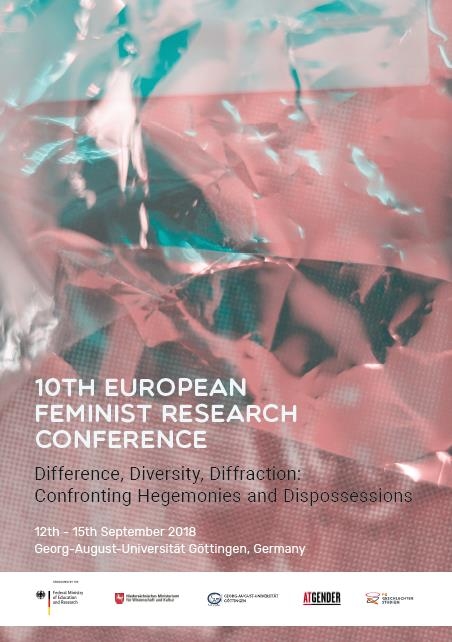Queering Feminist Solidarities
#Metoo, LoSHA and the Digital Dalit
DOI:
https://doi.org/10.17169/ogj.2020.71Keywords:
Postcolonialism, Feminism, Social Media, Intersectionality, Sexual HarassmentAbstract
At the height of international visibility for #metoo, a crowdsourced list was published on Facebook that contained the names of prestigious Indian academics, accusing them of sexual harassment. The list was controversial not only in that it became a viral phenomenon (and resulted in immediate questioning of the legitimacy of internet culture for politics) but also in that these accusations did not contain information on the circumstances of the alleged crimes, so as to protect the victims’ anonymity. The list was quickly dubbed “the list of naming and shaming” and was met with its strongest criticism from within the feminist movement itself, as established feminists argued publicly against such methods and against the queer Dalit leaker of the document, Raya Sarkar. This paper examines these conflicts of solidarity as conflicts between transnational and local positionalities and argues for the possibility of digital spaces as environments that invite a queering of identity politics, constructive disagreement, and transformative justice, rather than mere conflict and its resolution through a homogenous feminist identity.
References
A Verso Report (2018): Where Freedom Starts: Sex Power Violence #MeToo. London / New York: Verso.
Ambedkar, Bhimrao Ramji (1946): What Congress and Gandhi have done to the untouchables. 1st Samyak Edition. Bombay: Thacker.
Ayyar, Varsha (2017): Caste-Gender Matrix and the Promise and Practice of Academia. In: Economic and Political Weekly 52 (50), 7–8.
Balsamo, Anne (2011): Designing Culture: The Technological Imagination at Work. Durham: Duke University Press. doi: 10.1215/9780822392149.
Bargi, Drishadwati (2017): On Misreading the Dalit Critique of University Spaces. In: Economic and Political Weekly 52 (50), 7–8.
Barlow, John Perry (1996): A Declaration of the Independence of Cyberspace. Electronic Frontier Foundation. https://www.eff.org/cyberspace-independence (17.10.2018).
Berlant, Lauren (1998): Intimacy: A Special Issue. In: Critical Inquiry 24 (2), 281– 288. doi: 10.1086/448875.
boyd, danah/Marwick, Alice E. (2011): I tweet honestly, I tweet passionately: Twitter users, context collapse, and the imagined audience. In: New Media & Society 13 (1), 114–133. doi: 10.1177/1461444810365313.
BuzzFeed India/Kandukuri, D. (2019): Is The Feminism We See Really Intersectional? BuzzFeed India. https://www.buzzfeed.com/watch/video/78088 (30.01.2020).
Castro Varela, Maria do Mar/Dhawan, Nikita/Engel, Antke (Ed.) (2011): Hegemony and heteronormativity: Revisiting ‘the political’ in queer politics. Queer interventions. Burlington, VT: Ashgate Pub. Company.
Chachra, Manisha (2017): Naming sexual harassers without due process is mob justice. Asia Times. https://www.asiatimes.com/2017/10/opinion/naming-sexual-harassers-without-due-process-mob-justice (16.08.2019).
Chaudhuri, Maitrayee (2017): Refashioning India: Gender, media, and a transformed public discourse. Hyderabad, Telangana, India: Orient BlackSwan.
Chun, Wendy Hui Kyong. (2016): Updating to Remain the Same: Habitual New Media. Cambrige (USA) / London (UK): MIT Press. doi: 10.7551/mitpress/ 10483.001.0001.
Das, Poulomi (2017): What Do We Do About the Sexual Harassers’ List? Arré. https://www.arre.co.in/gender/raya-sarkar-sexual-harassers-list-sexual-harassment-whisper-network-kavita-krishnan-kafila-statement-feminism-karuna-nundy (19.08.2019).
Dasgupta, Piyasree (2018): #MeToo In India: 75 Professors, 30 Institutes, What Happened To Raya Sarkar’s List Of Sexual Harassers? HuffPost India. https://www.huffingtonpost.in/2018/10/25/metoo-in-india-75-professors-30-institutes-what-happened-to-raya-sarkar-s-list-of-sexual-harassers_a_23571422 (27.09.2019).
Dean, Aria (2016): Poor Meme, Rich Meme. Real Life. https://reallifemag.com/poor-meme-rich-meme (21.05.2019).
Dey, Adrija (2018): Nirbhaya, new media and digital gender activism. 1st Edition. Emerald Publishing. doi: 10.1108/978-1-78754-529-820181002.
Fair, Christine C. (2017): #HimToo: A Reckoning. BuzzFeed. https://www.buzzfeed.com/christinefair/himtoo-a-reckoning (13.03.2019).
Gajjala, Radhika (2004): Cyber Selves: Feminist Ethnographies of South Asian Women. Rowman Altamira.
Gajjala, Radhika (2018): When an Indian Whisper Network Went Digital. In: Communication, Culture and Critique 11 (3), 489–493. doi: 10.1093/ccc/tcy025.
Gajjala, Radhika (2019): Digital diasporas: Labor and affect in gendered Indian digital publics. London / New York: Rowman & Littlefield International.
Gajjala, Radhika/Vemuri, Aysha/Sarkar, Raya (2019): Dialogue Interlude #9: On #LoSHA. In: Gajjala, Radhika (Ed.): Digital diasporas: Labor and affect in gendered Indian digital publics. London / New York: Rowman & Littlefield International.
Gopal, Priyamvada (2018): No Poetry After Auschwitz? Outlook.https://www.outlookindia.com/magazine/story/no-poetry-after-auschwitz/300086 (19.09.2019).
Gupta, Namrata/Dangwal, Rhea (2017): Raya Sarkar and All The List’s Men. Medium. https://medium.com/krantikali/raya-sarkar-and-all-the-lists-men-ae956f21eab1 (19.09.2019).
Jha, Sonora/Kurian, Alka (Ed.) (2018): New feminisms in South Asia: disrupting the discourse through social media, film and literature. New York / London: Routledge.
Kurian, Alka (2018): ‘Decolonizing the Body: Theoretical Imaginings on the Fourth Wave Feminism in India’. In: Jha Sonora/Kurian Alka (Eds.): New feminisms in South Asia: Disrupting the discourse through social media, film and literature. New York / London: Routledge.
Menon, Nivedita (2017a): Statement by feminists on Facebook campaign to “Name and Shame”. Kafila. https://www.kafila.online/2017/10/24/statement-by-feminists-on-facebook-campaign-to-name-and-shame (11.07.2019).
Menon, Nivedita (2017b): From Feminazi to Savarna Rape Apologist in 24 hours. Kafila. https://kafila.online/2017/10/28/from-feminazi-to-savarna-rape-apologist-in-24-hours (11.07.2019).
Menon, Nivedita (2018): In the wake of the AUD report. Kafila. https://kafila.online/2018/03/10/in-the-wake-of-the-aud-report (15.08.2019).
Mondal, Mimi (2018): A Dalit woman’s thoughts on #MeTooIndia. The Indian Express. https://indianexpress.com/article/opinion/a-dalit-womans-thoughts-on-metooindia-5402538 (22.08.2019).
Nayar, Pramod K. (2014): The Digital Dalit: Subalternity and Cyberspace. In: Sri Lanka Journal of Humanities 37 (1–2), 69–74. doi: 10.4038/sljh.v37i1-2.7204.
Paik, Shailaja (2014): Building Bridges: Articulating Dalit and African American Women’s Solidarity. In: Women’s Studies Quarterly 42 (3/4), 74–96. doi: 10.1353/wsq.2014.0053.
Paletta, Danielle/Anh Vu, Lieu (2018): ‘Indian LGBTI community celebrates the Supreme Court’s ruling on Section 377’. ILGA. https://ilga.org/india-Section- 377-Supreme-Court-ruling-unconstitutional (20.08.2019).
Puar, Jasbir K. (2007): Terrorist assemblages: Homonationalism in queer times. Durham: Duke University Press. doi: 10.1215/9780822390442.
Rao, Pallavi (2018): Caste and the LoSHA Discourse. In: Communication, Culture and Critique, 11 (3), 494–497. doi: 10.1093/ccc/tcy020.
Rasul, Zoya (2018): Why some Dalit voices are calling #MeTooIndia non-inclusive?. News and Analysis from India. https://newsd.in/why-some-dalit-voices-are-calling-metooindia-non-inclusive (19.08.2019).
Ray Murray, Padmini (2018): Bringing up the Bodies: The Visceral, the Virtual, and the Visible. In: Losh E./Wernimont J. (Ed.): Bodies of Information: Intersectional Feminism and the Digital Humanities. University of Minnesota Press: Minneapolis, 185–200. doi: 10.5749/j.ctv9hj9r9.15.
Roy, Srila (2017): Whose Feminism Is It Anyway? The Wire. https://thewire.in/gender/whose-feminism-anyway (19.08.2019).
Srinivasan, Ramesh (2019): Whose Global Village? Rethinking how technology shapes our world. New York: NYU Press.
Tellis, Ashley (2012): Disrupting the Dinner Table: Re-thinking the “Queer Movement” in Contemporary India. In: Jindal Global Law Review 4 (1), 142–156.
The New Indian Express (2017): ‘#MeToo crusader Tarana Burke, Dalit-American transmedia artist Thenmozhi Soundararajan come out in support of Raya Sark-ar’. The New Indian Express. https://newindianexpress.com/nation/2017/oct/26/metoo-crusader-tarana-burke-dalit-american-transmedia-artist-thenmozhi-soundararajan-come-out-in-s-1683589.html (20.08.2019).
Thomas Danaraj, Christina (2018): MeToo and savarna feminism: Revolutions cannot start with the privileged, feminist future must be equal for all. Firstpost. https://www.firstpost.com/india/metoo-and-savarna-feminism-revolutions-cannot-start-with-the-privileged-feminist-future-must-be-equal-for-all-5534711.html (20.08.2019).
Visvanathan, Shiv (2018): The Chilly Justice Of The Gulag. Outlook. https://www.outlookindia.com/magazine/story/the-chilly-justice-of-the-gulag/299993 (21.02.2019).

Downloads
Published
How to Cite
Issue
Section
Categories
License
All contributions in Open Gender Journal are published under the Creative Commons Attribution 4.0 International license. You may freely make use of the corresponding texts in accordance to the conditions of the license (License contract, generally understandable version). There is no exclusive transfer of usage rights ("copyright transfer"). Open Gender Journal does not charge authors any costs for publication (so-called Article Processing Charges, APC) or submission (so-called Submission Charges). Authors are encouraged to share their contributions in other places, such as repositories.













